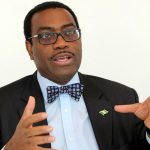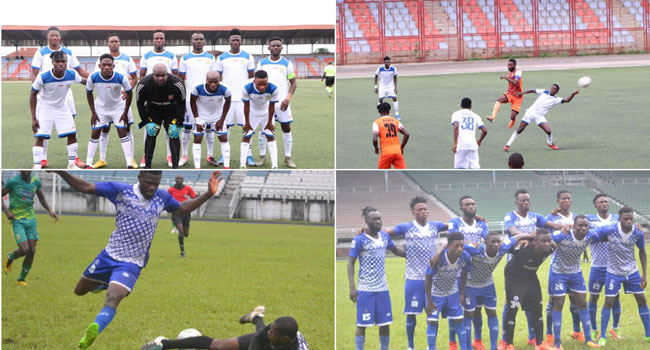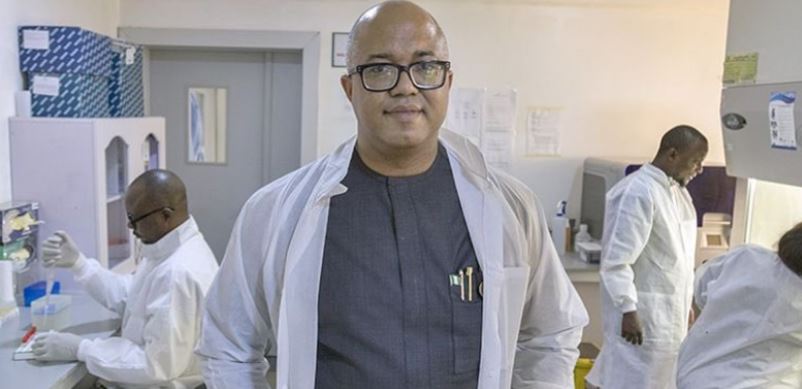GIVEN that Nigeria had not been exposed to this magnitude of disablement by a pandemic till now, it is not surprising that many unexpected hiccups had occurred in the management of the lockdown by the police. Hence, not many people were surprised when the police mistook terrorizing citizens as indispensable to keeping order during lockdown. But the new report after six weeks of lockdown of police harassment of frontline medical workers in Lagos is one matter that should not have happened, not after reports by human rights groups of unnecessary violation of human rights in the guise of enforcing lockdown protocols.
Why in the world would the Nigeria Police wait until doctors called a sit-at-home strike before assuring doctors that police officers would treat doctors and other health workers as their counterparts in other countries are treated—essential workers? After Secretary to Government and chairman of the Presidential Task Force on the pandemic stated on the day the lockdown was extended: “The measures, exemptions, advisories and scope of entities allowed to reopen under phase one of the eased locked down, shall be maintained across the federation for another two weeks effective from 12 midnight today (18th May 2020 to 1st June 2020),” why would complaint by the Nigerian Medical Association about harassment by the police drag till the point of sit-at-home strike? Why should it be hard for police officers to realize the importance of doctors at this time?
Shouldn’t the police have sensed the danger of pushing doctors into a sit-at-home strike at a time of national health emergency? In many countries, frontline health workers during the pandemic—doctors, nurses, medical technicians—are not only given free passage; they are conveyed to hospitals and their homes in hospital vehicles and most of the time with police men to ensure fast passage for this group of workers during emergencies. The training given to the average police officer on managing the public during emergencies ought to have been adequate to sensitize the police to the role of doctors during an epidemic, let alone a pandemic. It is embarrassing that in a country with just about four doctors to 10,000 persons, doctors need to beg police officers for recognition as essential service provider at a time of national health disaster.
The Nigeria Police has been in the news since the first round of lockdowns and in ways that are not favorable. The Human Rights Commission complained during the first two weeks of lockdown about police killing of 18 people in the name of enforcing lockdown protocols when the virus itself had killed only 12! Hear the response of the police spokesman on this allegation: “The commission should have given details of those killed by the police, their number, names and places where they were killed to enable us take appropriate actions.” If this is the best that a police spokesman can do on an allegation of such importance, then the Nigeria Police Force deserves immediate reform.
Similarly, the Nigeria Governors Forum has recently complained about failure of the police to enforce the presidential order banning inter-state travel during the second round of the lockdown: “Conscious of the very grave implications of the brazen breach of the presidential order restricting interstate movements and equally conscious of the fact that the nation’s security agencies, particularly the police, have the responsibility to enforce law and order, including the presidential ban on interstate movement. We are worried about reports of alleged complicity in the said breaches by those who are supposed to enforce compliance with the directives of the president.”
The irony of the statement by the NGF must have been lost on the NGF whose members constitute majority of members of the Nigerian Police Council, a body that has ultimate power to call the police to order. In a way, the indiscipline in the Nigeria Police is within the jurisdiction of the Nigeria Police Council to remove, and governors are the most qualified to provide leadership for such reform.
The second matter arising from the pandemic is a positive one. President Mohammadu Buhari’s recent creation of a committee to prepare recommendations of the Steve Oronsaye Panel on Rationalisation of Ministries, Agencies and Parastatals for implementation is good news. Like other countries cognizant of the need to respond to known and yet-to-be-known economic and social effects of the pandemic, the decision by the federal government on reducing the cost of governance is salutary, especially that it is coming from a government that in the last five years seemed to have sworn to stick with the status quo in many respects.
Doubtless, the Oronsaye report had existed one year before the election that brought President Buhari to power in 2015. Even President Goodluck Jonathan who initiated the move to right-size the federal government with the aim to cut the cost of governance chose to put implementation of the recommendations in the cooler after releasing a white paper on the panel’s report. This was easy for him to do because the country’s economy was not threatened as much as it has been since the pandemic.
Even President Buhari and his party did not feel any need to start preventing waste of resources outside the fight against corruption, largely because of optimism about the demand for petroleum in the international market to reverse any decline in the price of the black gold. But the new decision by the federal government to look for ways to conserve resources by returning to the Oronsaye panel’s report is a sign of needed pragmatism on the part of the Buhari administration. If better economically placed countries are already embarking on reforms in preparation for post-pandemic world, it will be myopic on the part of Nigeria’s government to look away from the urgency of reform, particularly any reform that can be considered low-hanging fruit.
The government’s long-awaited readiness to right-size government is timely, coming after substantial review and reduction of the 2020 budget by about 20%. It will be shameful for Nigeria to keep funding agencies and ministries that overlap in objectives, activities, and outcomes. It will also be embarrassing for the country to wait for multilateral organizations to ask Nigeria to cut the cost of its governance, as a condition for taking a loan or seeking loan forgiveness.
Perhaps after successful implementation of the recommendations already in existence, the federal government ought to look at some of the ministries it has created or resurrected in the last five years. If there is just one police force, why resurrect a ministry of police affairs? Why should we separate the analog and digital aspects of the economy? What does the Ministry of Humanitarian Affairs, Disaster Management and Social Development do that cannot be done by Federal Emergency Management Agency while the social development component of the ministry is transferred to the current ministry of youth and sports?
It is apt that the federal government is seeing ahead the importance of proactive response to fallouts from the pandemic. It is also realistic for the federal government and state governments to accept that many things will have to change as full implications of the pandemic further appear. One thing is clear, with or without intervention from the government, things will no longer be the same after the pandemic, but it is wiser for government at all levels to intervene and not leave the future of the country to chance.








